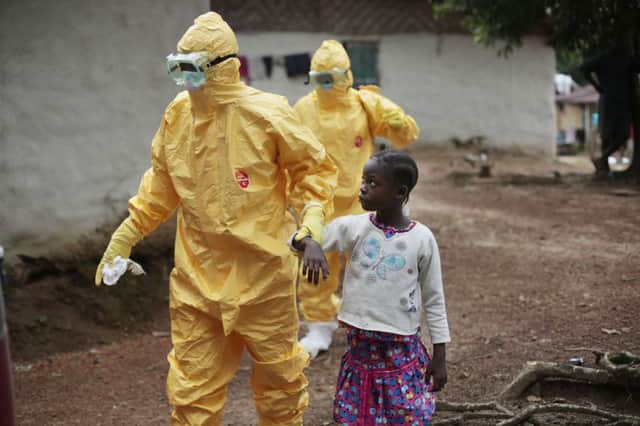Ebola wake-up call for overseas workers


THE case of Pauline Cafferkey, the public health nurse and third sector volunteer who contracted Ebola in Sierra Leone, who is thankfully no longer in a critical condition and is showing signs of improvement, has refocused attention on the employer/employee relationship across all sectors in relation to overseas working.
Rightly, Ms Cafferkey has attracted praise from the health secretary, Jeremy Hunt, as standing for the “very best of NHS values”.
Advertisement
Hide AdAdvertisement
Hide AdBut it leads us to ask the questions: What are the employer’s duties towards employees in the frontline fight against Ebola in the third and public sectors?; What are employer’s duties to their business travellers in the private sector?; and What should employees do to protect themselves?
Usefully, the International Labour Organisation and the World Health Organisation have jointly produced a briefing note for workers and employers addressing occupational safety and health (OSH) across all three sectors. In many respects, the note chimes with UK health and safety and employment law and good practice.
Generally, the briefing note states that employers have overall responsibility to ensure that all practicable preventative and protective measures are taken to minimise occupational risks.
For those in the third and public sectors, the briefing note envisages that employers will be responsible for providing their employees with adequate information, comprehensive instruction and necessary training on OSH and to consult employees on those aspects of their work.
It is interesting to note that currently, Save The Children – for whom Pauline Cafferkey volunteered – are conducting a review which will scrutinise training, safety protocols, how protective equipment is used and working practices in an effort to discover exactly how she contracted the disease.
For their part, the note has employees as being responsible for following the OSH procedures established by their employers to avoid exposing others to health and safety risks. They are required to report to their employer any situation that they believe presents an imminent and serious danger to their life or health.
The employer should then take remedial action and until they have done so, employees cannot be required to return to the dangerous work situation. Health care and other workers have the right to remove themselves from a work situation which they reasonably believe presents an imminent and serious danger to their life or health.
Translating this across to UK law, much of what the briefing note sets out would be subsumed under the duties on employers in terms of the Health and Safety at Work Act 1974.
Advertisement
Hide AdAdvertisement
Hide AdThis aims to ensure, so far as reasonably practicable, the health, safety and welfare at work of all employees. It also imposes a duty on the employer to conduct their business in such a way to ensure that others not in their employ are not exposed to risks to their health and safety.
Under the Act, employees have duties to take care for their own health and safety and that of others while at work as well as to co-operate with the employer in their efforts to ensure that health and safety is maintained.
And what of the private sector employee required to travel to an area no longer considered to be “safe”? The briefing note has the risk as “extremely low” in the absence of direct contact with blood, secretions or other bodily fluids. Beyond that, employers may consider reviewing their policies and clauses in their employment contracts for those working abroad.
What happens if an employee refuses to go? If regular travel is required and is sufficiently set out in the contract of employment, then the employer is probably still in a strong position. But their position is weaker if travel is a less frequent feature of the job.
If the travel requirement is not sufficiently set out, the employee could argue that foreign travel was not a contractual requirement, which might open up justification for a claim of constructive dismissal over refusal to travel.
The tenor of employer/employee relationships is often characterised as one of polarity, but in the face of such an indiscriminate virus, co-operation between employers and employees across all sectors will be key.
• Ray Gribben is a partner (health, safety and environment) with Burness Paull LLP www.burnesspaull.com